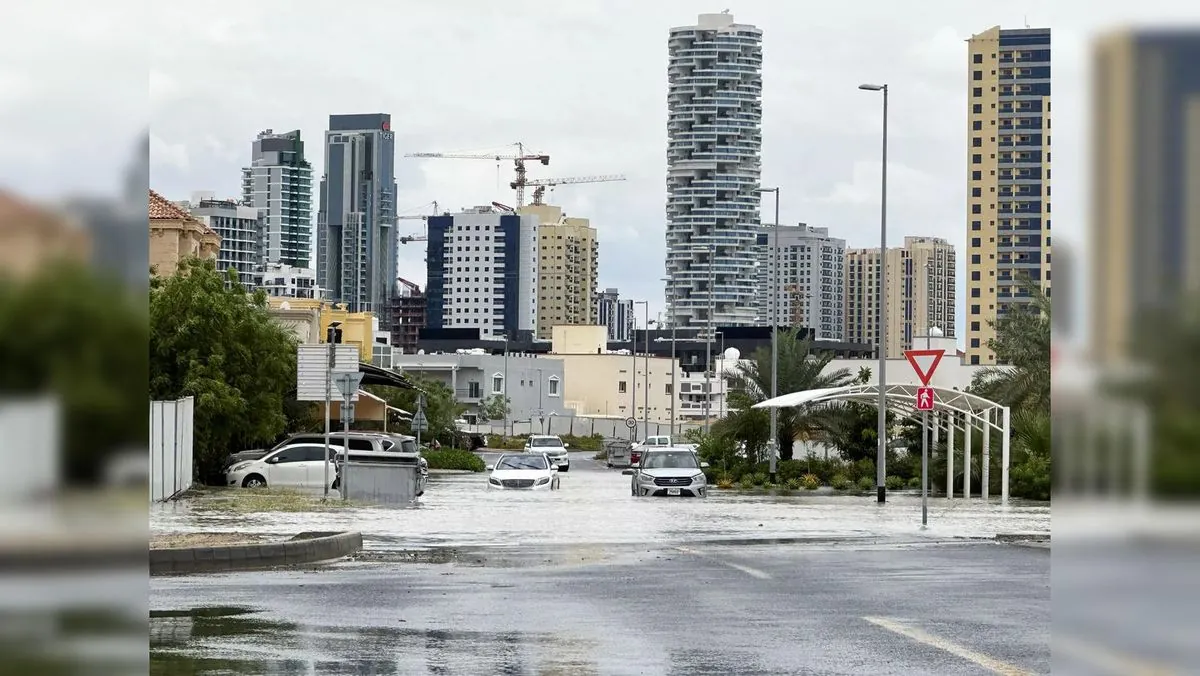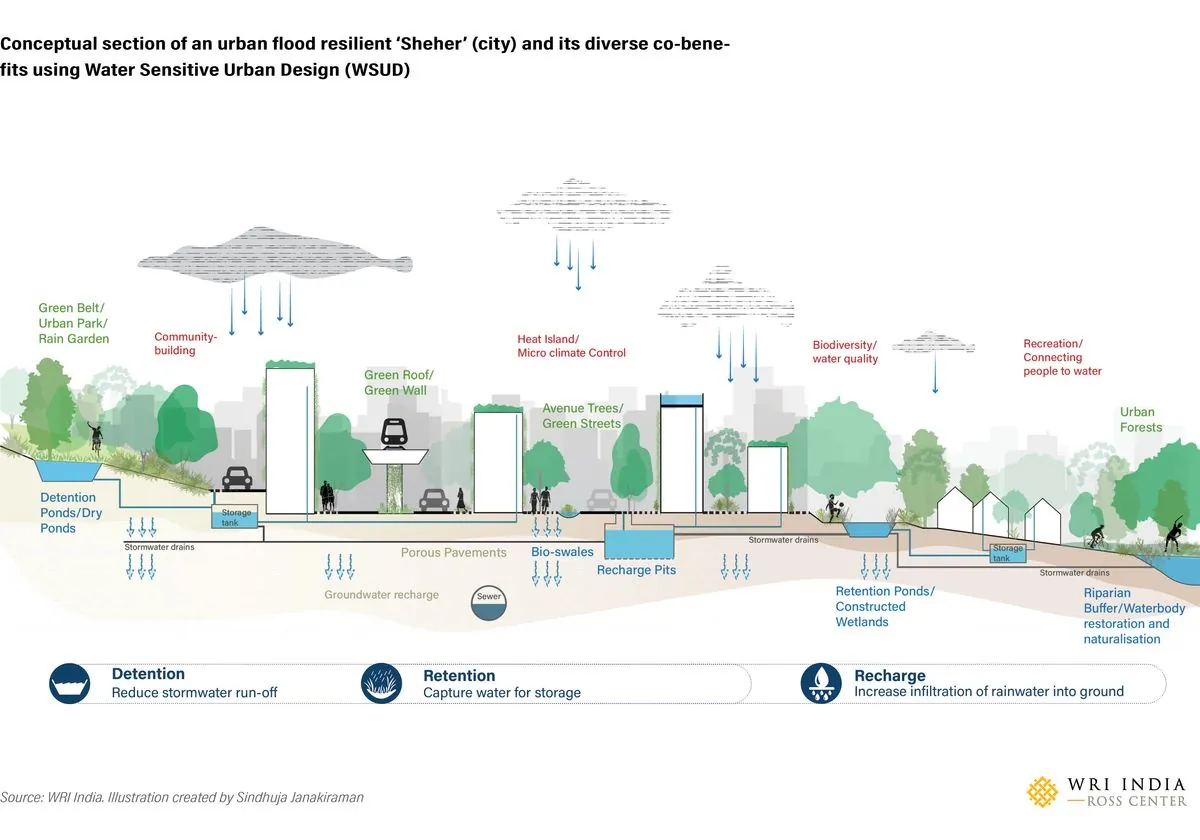India Invests $300 Million in Urban Flood Control and Water Conservation
India allocates $300 million for flood mitigation and water conservation in seven major cities. The two-year project aims to expand water bodies and improve drainage systems to address urban flooding and water scarcity.

In a significant move to address urban flooding and water scarcity, the Indian government has announced a $300 million investment in flood control and water conservation measures across seven major cities. This initiative, set to be implemented over the next two years, marks a crucial step in tackling the recurring challenges faced by India's rapidly growing urban centers.
The project will focus on expanding water bodies such as lakes and constructing new drainage systems in Mumbai, Chennai, Bengaluru, Kolkata, Ahmedabad, Hyderabad, and Pune. These cities have been selected based on the frequency of flooding incidents and the resulting economic losses.
India, the world's largest democracy by population, has been grappling with the dual challenges of urban flooding and water scarcity. The country's urban population is projected to double by 2050, putting immense pressure on existing infrastructure. This rapid urbanization has led to the loss of many urban green spaces and water bodies, exacerbating the flooding problem during monsoon seasons.
Krishna S. Vatsa, a member of the National Disaster Management Authority, emphasized the importance of this initiative, stating:
Vatsa highlighted the need for a comprehensive approach, combining improved storm water drainage with nature-based solutions to increase the capacity of rivers and lakes to carry rainwater.
The investment will be distributed among the seven cities, with Mumbai, Chennai, and Kolkata each receiving 5 billion rupees, while Ahmedabad, Hyderabad, Bengaluru, and Pune will get 2.5 billion rupees each. Notably, New Delhi was not included in this allocation, as the selection was based on specific criteria related to flood frequency and impact.
This initiative comes in response to recent extreme weather events. On July 8, 2024, Mumbai experienced over 300 mm of rainfall in just six hours, highlighting the urgent need for improved flood management systems. Vatsa noted that urban areas are particularly vulnerable to heavy rainfall, with as little as 100 mm of rain capable of causing significant inundation.
The project will also incorporate early-warning systems for floods, enhancing the cities' preparedness for extreme weather events. This is particularly crucial given India's monsoon season, which typically lasts from June to September and often brings heavy rainfall to urban areas.
While this investment is a step in the right direction, experts stress the need for long-term measures and continuous investment in urban infrastructure. The challenges faced by Indian cities are complex, involving not only flood control but also water conservation and distribution.
India's water management issues have gained international attention, with Moody's warning in June 2024 about the potential impact of water stress on the country's economic growth. Despite projections of 7.2% growth for the April 2024-March 2025 fiscal year, the highest among major economies, water-related challenges pose a significant risk to sustained development.
As India continues to urbanize and face the impacts of climate change, initiatives like this $300 million investment will be crucial in building resilient cities capable of managing both flood risks and water scarcity. The success of this project could serve as a model for future urban development strategies across the country and potentially in other rapidly urbanizing nations facing similar challenges.



































